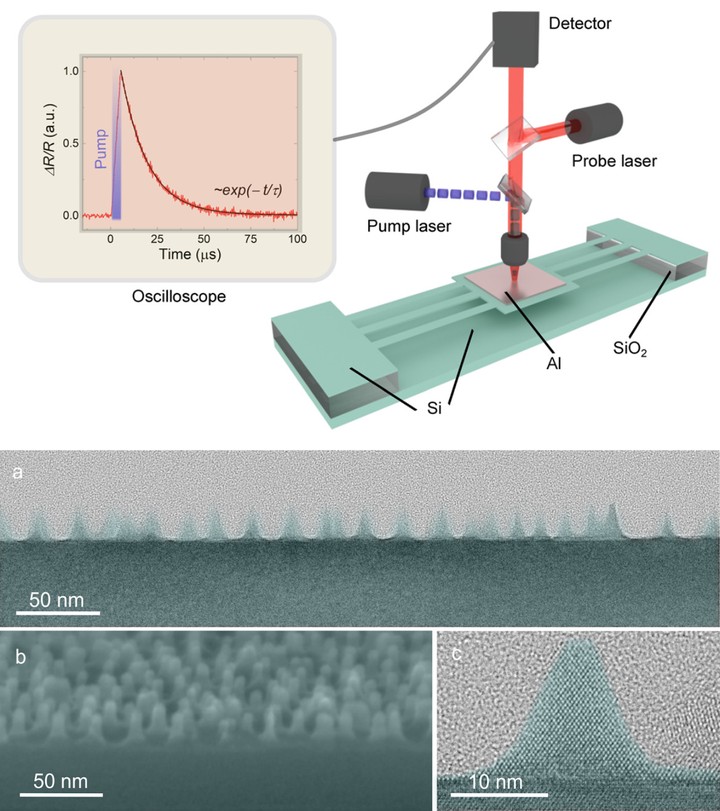Coherent and incoherent impacts of nanopillars on the thermal conductivity in silicon nanomembranes

Abstract
Nanostructuring is the dominant approach for effective thermal conduction control in nanomaterials. In the past decade, researchers have been interested in thermal conduction control by the coherent effects in phononic crystal (PnC) systems. Recent theoretical works predicted that nanopillars on the surface of silicon membranes could cause a dramatic thermal conductivity reduction due to the phonon local resonances. However, this remarkable prediction has not been experimentally verified yet with the deep-nanoscale pillar-based PnCs. Here, we fabricate nanopillars on suspended silicon membranes using damageless neutral-beam etching and investigate the impact of nanopillars on the thermal conductivity of the membranes in the 4–300 K range. We found that thermal conductivity reduction caused by the nanopillars does not exceed 16%, which is much weaker than that predicted by the theoretical works. Moreover, this reduction remains temperature independent. These facts make the coherence an unlikely reason for the observed reduction. Indeed, our Monte Carlo simulations can reproduce the experimental results under a purely incoherent approximation. Our study shows that the coherent control of heat conduction by PnC nanostructures is more challenging to observe experimentally in reality than predicted in near-ideal modeling.
ACS Applied Materials & Interfaces 12, 25478 (2020)